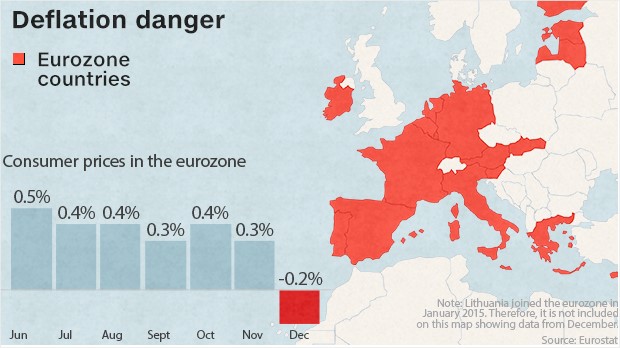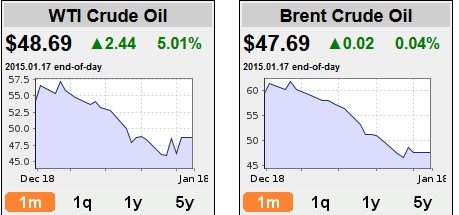In Switzerland, importers may be celebrating but exporters are hurting!
The recent currency spike in Switzerland took the global markets by complete surprise. When the Swiss National Bank (SNB) decided to remove the currency cap, the Swiss currency rose dramatically in value. Switzerland is a country that has already seen large numbers of investors looking elsewhere, owing to regulatory and taxation-related challenges. Now, with an overvalued currency, it is going to prove increasingly difficult for Swiss exporters to compete in Europe, the US and beyond. The pressures facing the Swiss franc are being compounded by ongoing economic weakness across Europe where low inflation, high unemployment and recessionary fears are real. The 3-year-old cap that was placed on the Swiss franc was meant to stabilise the currency, owing to the financial crisis that rocked European and global markets. However, with the European currency falling to its lowest levels against the greenback in recent weeks, and persistent eurozone weakness, the Swiss do not want to tie their fortunes to those of Europe at large.
Swiss Currency Dilemma: Importers vs Exporters?
Now that the Swiss have allowed their currency to find its own equilibrium against the euro, the dollar, the yen, the sterling and others, there is bound to be significant turbulence in the domestic market. The franc spiked by almost 30% on Thursday, 15 January 2015, before retreating somewhat. But investors are now taking stock of what the currency valuation means for bilateral relations with Switzerland. For starters, all Swiss exports, particularly commodities are going to be that much more expensive in dollars, euros, yen and pounds sterling. Purely on the face of it, Swiss exports are now that much more unattractive, and this runs to the heart of Switzerland's major exports in timepieces such as Swatch (OTC:SWGAY), Rolex, Omega and others. It was recently reported that the country's commodity sector is made up of approximately 500 companies which account for $22.2 billion or Fr.20 billion of the country's GDP. These trading houses employ upwards of 12,000 people, according to information released by the STSA (Swiss Trading and Shipping Association). Any reduction in exports is bound to have a knock-on effect on employment in Switzerland.
Swiss Reaction to the Swiss National Bank Decision
Commodity brokers, investors and analysts roundly condemned the decision by the Swiss National Bank (SNB) to scrap the cap. Among the many concerns noted by high level executives and traders was the fact that there were no contingency plans available for this sudden and dramatic decision. Other traders were far more critical in their response to the SNB, citing widespread tax uncertainty, monetary policy surprises and regulatory uncertainty. To compound the problem, the European Union is applying pressure on Switzerland to increase its tax rates, making the country far less attractive to high net worth investors. Switzerland has always been revered for its tax laws, banking privacy and safe-haven status, but that is slowly being eroded away. Staff costs in Switzerland account for 67% of total costs in the industry, and the appreciation of the local currency is bound to place the squeeze on revenues generated by Switzerland. Profit margins will shrink and profits will decline. As a result, tax revenues will suffer. If the government is looking to boost overall economic activity, the latest decision appears to be poorly thought out, and will ultimately reduce the available funds in state coffers.
Swiss Companies Relocating
Many Swiss companies have relocated their operations offshore in an effort to take advantage of lower overall cost structures elsewhere. The latest move by the SNB will continue to provide impetus to those industries seeking to establish operations in cheaper markets across Asia, such as Singapore, Thailand, and Taiwan etc. There are several big Swiss companies that have already relocated their headquarters elsewhere, including Mercuria and Trafigura. Glencore (LONDON:GLEN) for example employs well over 200,000 people, but only 750 of them are based in Switzerland. But not all commodities are suffering as a result of the latest decision by the SNB; gold has been trading at its highest level in 4 months. On Friday, 16 January 2015, traders scrambled for security on the back of news that the scrapping of the cap will severely impinge upon commodities trading in Switzerland. Gold was the main beneficiary of the uncertainty, with the precious metal rising to $1266.11 an ounce. By the end of the week, gold had advanced by 3.2 percentage points – the most since February 2014.
Falling Oil Price is Good News with a Caveat 
The timing of the decision by the SNB appears to be related to the upcoming decision on January 22 by the ECB. On that date, Mario Draghi – President of the European Central Bank will convene a meeting of the Governing Council of the European Central Bank and all issues relating to monetary policy will be discussed in Frankfurt Germany. It is widely expected that the ECB will unveil plans for a $500 billion bond repurchases program, otherwise known as quantitative easing, to kickstart the European economy. This will be done in an attempt to push up the rate of inflation towards its targeted rate of 2%, accelerate the velocity flow of money through the eurozone, and increase employment prospects. The eurozone has already fallen into a deflationary spiral, accelerated by the falling oil price. The prices of Brent crude oil and WTI crude oil have dropped to multi-year lows, with Brent crude oil currently trading at $47.69 per barrel and WTI crude oil trading at $48.69 per barrel. The problem with deflation is that prices are continually falling and consumers are postponing their purchases of big-ticket items in the hopes of getting them cheaper in the future. The only way to combat deflationary fears is to raise inflation by flooding the eurozone with an increased money supply. Analysts are sitting on the fence as to whether the eurozone is in a deflationary spiral or a negative inflationary spiral, but in any event, it is trending negative and action needs to be taken post-haste. The euro is currently trading at a 9-year low, and persistent unemployment weakness across Europe is an issue that needs to be addressed at grassroots level. The ECB would very much like to get its balance sheet assets up to the $3 trillion level, but questions abound as to whether that will include sovereign bonds or not.
